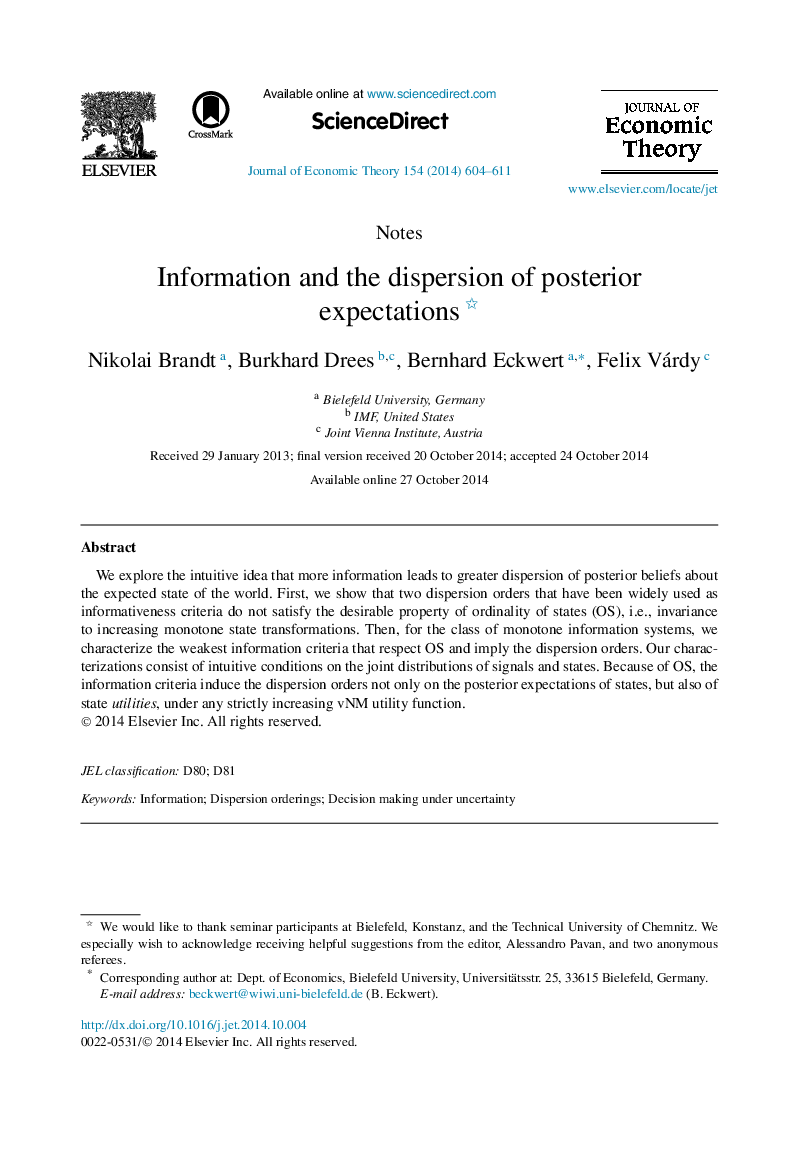| Article ID | Journal | Published Year | Pages | File Type |
|---|---|---|---|---|
| 956807 | Journal of Economic Theory | 2014 | 8 Pages |
Abstract
We explore the intuitive idea that more information leads to greater dispersion of posterior beliefs about the expected state of the world. First, we show that two dispersion orders that have been widely used as informativeness criteria do not satisfy the desirable property of ordinality of states (OS), i.e., invariance to increasing monotone state transformations. Then, for the class of monotone information systems, we characterize the weakest information criteria that respect OS and imply the dispersion orders. Our characterizations consist of intuitive conditions on the joint distributions of signals and states. Because of OS, the information criteria induce the dispersion orders not only on the posterior expectations of states, but also of state utilities, under any strictly increasing vNM utility function.
Related Topics
Social Sciences and Humanities
Economics, Econometrics and Finance
Economics and Econometrics
Authors
Nikolai Brandt, Burkhard Drees, Bernhard Eckwert, Felix Várdy,
